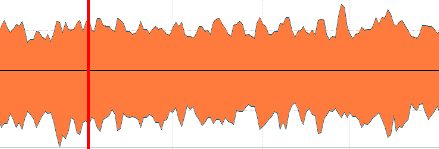Despite European courts forcing ISPs to block access to The Pirate Bay, the move has had little impact on the internet's most well known, longest-running torrent website. In fact, according to a blog post by one of Europe's largest ISPs, XS4ALL, it has made absolutely no difference at all.
XS4ALL published their own data following the Dutch anti-piracy group BREIN's announcement with great enthusiasm that the number of people accessing the torrent site had "plummeted" since the country's courts forced Dutch ISPs to block access to TBP, labeling it as a "striking example" of how the group was winning the war on piracy. However, the ISP's data reveals a different story.

The red line indicates when the blockade of the TPB was started on February 1, and the graph illustrates the timeline between January 1 and June 1. Overall the graphic reveals that traffic is largely unaffected by the court forced ISP blocks put in place at the behest of anti-piracy campaigners.
XS4ALL spokesperson Niels Huijbregts' message to BREIN is simple, "your repressive policy does not work. You can visit the Pirate Bay blocked" and despite their best efforts, the legal action and courts have done nothing to change the download behavior of Dutch citizens. If anything, the media attention behind The Pirate Bay has just resulted in more computer users visiting websites that link pirated material.
"With your witchhunt you've declared war on the biggest film and music fans. The people who could be your biggest customers hate the entire entertainment industry because of all the lawsuits and lobbying activities," he added.
His company argues that instead of targeting ISPs with court action the entertainment industry should focus on creating a legalized version of The Pirate Bay. "Build a legal version of the Pirate Bay, where everyone can find and download [content]. Because that's what people want: anytime, anywhere access to everything. That is the reality of the Internet, so that's what people expect."